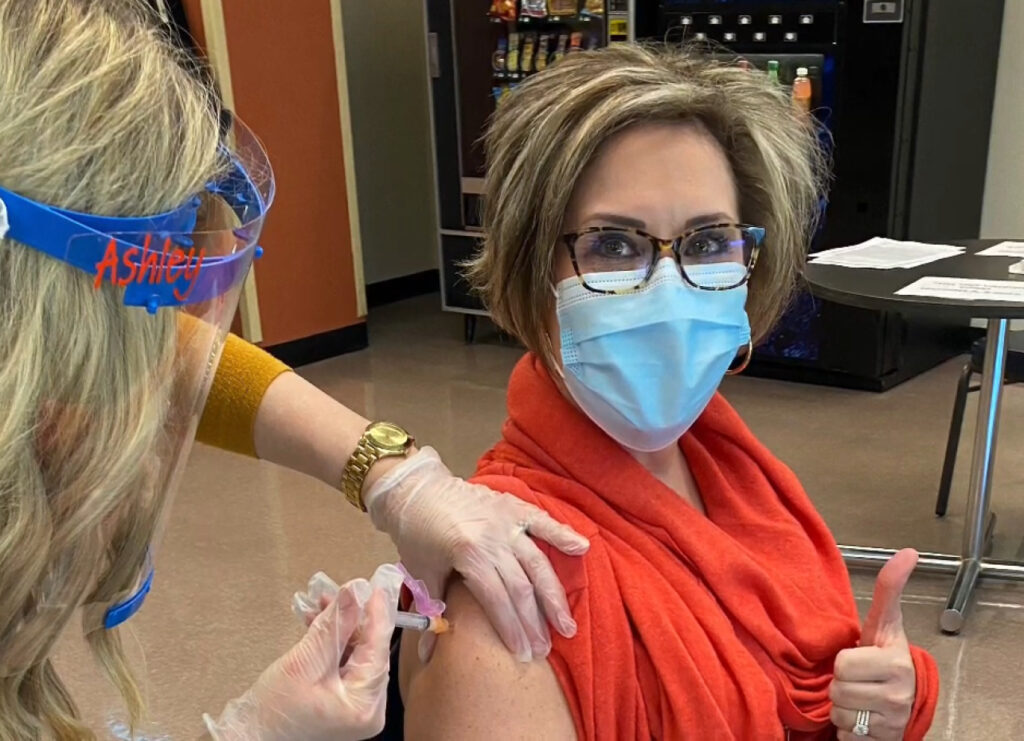
After waiting nearly one year for the COVID-19 vaccination rollout to begin, the excitement is reportedly not being felt by some health care workers who are feeling hesitant about receiving the shots. Health care leaders and media outlets are reporting that while patients and nursing home residents are lining up to receive the vaccination, some health care employees, particularly in nursing homes, have expressed concern about potential side effects.
Kim Moody, Vice President of Operations at Wesley Commons in South Carolina, which offers independent living, assisted living, skilled nursing, and rehabilitation options to its residents, said some employees have talked with her about their uncertainty. While 95% of the Wesley residents in assisted living and the skilled nursing facility have been vaccinated only 50% of staff have received their first shot. Moody said their concerns parallel what health care leaders are hearing across the United States.
“I asked our employees if they have read the clinical data about the vaccine, and most have said they have not, but they are reading about it on various social media channels,” Moody said. “They are worried about the long-term effects of the vaccine because they believe it was developed too fast or say they have already had COVID-19. They are also concerned that it will affect their fertility.”
In contrast to the fertility belief, The American College of Obstetricians and Gynecologists opposes the exclusion of pregnant and breastfeeding mothers from receiving the vaccine. Their website states, “Pregnant individuals are more likely to have certain manifestations of severe illness associated with COVID-19 infection such as ICU admission, mechanical ventilation, and death.”
Other misinformation floating around social media includes beliefs that you can contract COVID-19 from the vaccine, or the vaccine will change your DNA. The Centers for Disease Control and Prevention (CDC) said this is not true because messenger RNA (mRNA) vaccines do not use the live virus that causes COVID-19 and mRNA never enters the nucleus of the cell, which is where our DNA is kept.
Moody said encouraging all employees to trust the vaccine starts at the top with leadership. She recommends that administrators get vaccinated in front of employees and discuss concerns with them to reassure their safety. Moody posted a short testimony on YouTube showing her receiving the shot and talking about the experience.
“It felt like any normal injection,” she said. “My arm was a little sore the next day, but it did not feel as bad as a DTAP shot, and any soreness was gone in a day or two.”
Moody added that the mild discomfort caused by getting a shot also is a slight inconvenience when you consider that you are protecting others. She hopes her discussions with Wesley Commons staff about their concerns and the distribution of clinically backed information about the COVID-19 vaccine will result in more employees being vaccinated.
“We all have a once in a lifetime chance to be the first people to receive the vaccine,” Moody said. “I did it to protect our residents and my co-workers, but I also did it to protect my family.”
Resources for Addressing COVID-19 Vaccine Resistance:
- Vaccine Misinformation Management Field Guide
- COVID Communications Cheat Sheet
- The Importance of COVID-19 Vaccination for Healthcare Personnel from the Centers for Disease Control and Prevention (CDC)
- Long-Term Care Facility Toolkit: Preparing for COVID-19 Vaccination at Your Facility from the CDC
